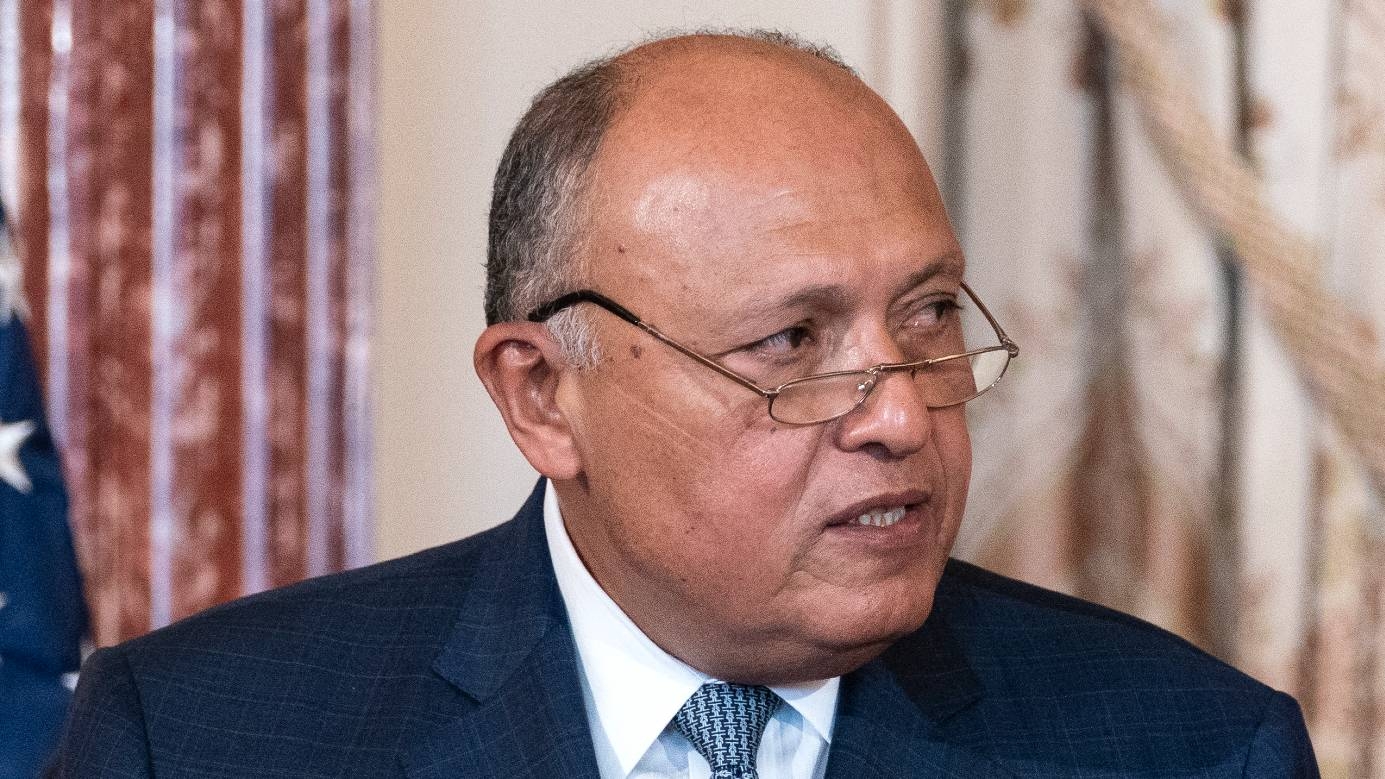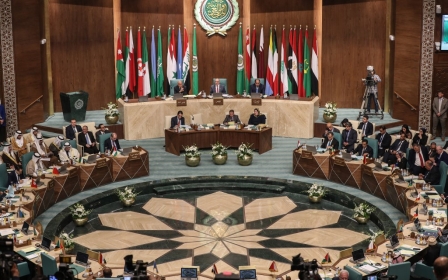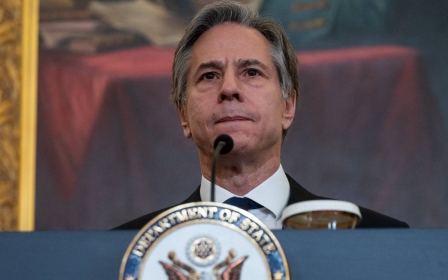Syria can re-enter Arab League if certain steps are met, says Egypt's foreign minister

Egyptian Foreign Minister Sameh Shoukry said Syria could regain its status in the Arab League and fully normalise relations if it is able to play its "traditional role" in supporting Arab regional security.
Speaking at the Wilson Center on Tuesday, during the foreign secretary's two-day visit to Washington for the Egypt strategic dialogue with the Biden administration, Shoukry said "Syria is a very important component of Arab national security".
Shoukry said the Syrian government needs to demonstrate "a willingness to once again play its traditional role in support of Arab national security" and also show it can deal with the aftermath of the decade-long conflict in the country, including "the humanitarian dimension as well as the refugee problem".
"When we ascertain that that is the case, I'm sure there will be a receptive re-entry of Syria into the Arab League and the Arab fold," Shoukry said.
"We hope it can regain its posture and play its traditional role in a way that is supportive of the peace and security of the region."
New MEE newsletter: Jerusalem Dispatch
Sign up to get the latest insights and analysis on Israel-Palestine, alongside Turkey Unpacked and other MEE newsletters
Syria was suspended from the 22-member Arab League in November 2011, following the country's civil war. Sparked by the brutal repression of anti-government protests that same year, the war has killed an estimated 500,000 people and displaced millions.
However, in recent months, several Arab countries have begun to engage with the Syrian government, including Egypt, Jordan, and the United Arab Emirates (UAE). The Emirati foreign minister, Abdullah bin Zayed, visited Damascus on Tuesday and met with Syrian President Bashar al-Assad.
In September, energy ministers from Egypt, Syria and Lebanon convened and agreed to a US-brokered deal that would see the transportation of Egyptian gas through Jordan and Syria into Lebanon for electricity generation, a further sign of bringing Damascus back into the regional mix.
Syria remains unstable and crippled by poverty and western sanctions, but Assad is in control of most of the country, making him a viable ally in the region despite the previous animosity between himself and Arab leaders.
A major obstacle, however, is the US, which passed the Caesar Act, a piece of legislation designed to make it difficult for the Syrian government to trade with the outside world and engage in reconstruction efforts.
Republican Senator Jim Risch, a ranking member of the US Senate Foreign Relations Committee, slammed Tuesday's meeting between bin Zayed and Assad.
"It is shameful that a growing number of countries are open to normalizing relations w/ #Assad," Risch said on Twitter.
"The #UAE and others that are ignoring the ongoing violence against #Syrian civilians should work towards implementing #UNSCR2254 before taking any further steps toward normalization."
This article is available in French on Middle East Eye French edition.
Middle East Eye delivers independent and unrivalled coverage and analysis of the Middle East, North Africa and beyond. To learn more about republishing this content and the associated fees, please fill out this form. More about MEE can be found here.





